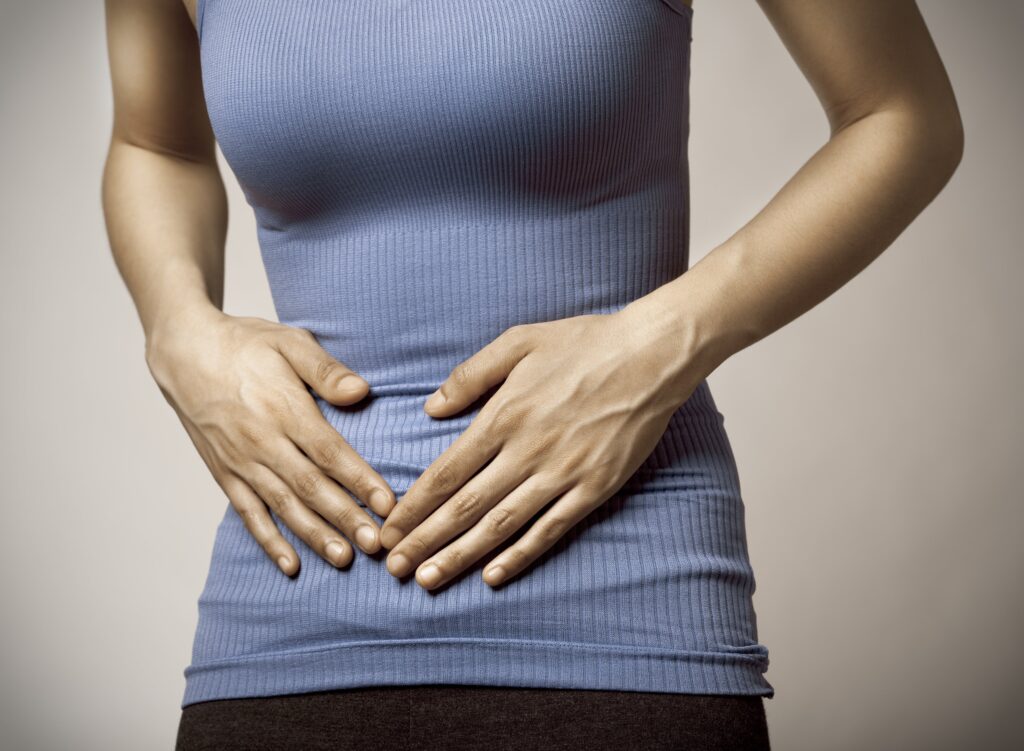Summary

Constipation is a digestive condition that causes the stool to harden, making it difficult and sometimes painful to pass. This condition can affect anyone, regardless of age. Constipation occurs when the colon absorbs too much water from food, often due to factors such as lack of physical activity, certain medications, age, and insufficient water intake. Additionally, a low-fiber diet is a common cause. In some cases, constipation can result from underlying health conditions that impact the digestive system.
Typical symptoms of constipation include straining during bowel movements, abdominal bloating, and gas. Some people may also experience nausea, and in rare instances, there can be traces of blood in the stool due to straining. These symptoms highlight the discomfort and potential complications associated with constipation, especially when left unaddressed.
There are various ways to manage and relieve constipation. Increasing water intake and consuming fiber-rich foods are often effective first steps. In more severe cases, healthcare providers may recommend medications or laxatives to soften and ease stool passage. Recognizing and addressing constipation early can help prevent discomfort and more serious complications.
Table of Contents
Symptoms of Constipation

The most common symptom of constipation is difficulty and straining during bowel movements, often with hard or small stools. Passing only a small amount of stool at a time may also be an indicator of constipation.
Other symptoms of constipation include:
- Abdominal pain. Discomfort or pain in the abdomen is common as stool accumulates and puts pressure on the digestive tract.
- Abdominal cramps. Constipation can cause painful cramping as the intestines struggle to move hardened stool.
- Nausea. In some cases, constipation may lead to feelings of nausea, especially if waste is not eliminated effectively from the body.
- Bloating. A swollen or bloated feeling in the abdomen is common due to gas buildup and stool retention.
- Loss of appetite. Constipation can reduce appetite as the digestive system feels full and uncomfortable.
These symptoms can range from mild to severe and may affect daily life if constipation persists. Recognizing these signs early on can help with timely management and prevention of further complications.
Types of Constipation
While constipation generally presents with similar symptoms, it has different types, each with unique underlying causes. The two primary types are primary constipation and secondary constipation.
- Primary constipation. This is the most common type and is further divided into three subtypes: slow-transit constipation, pelvic floor dysfunction, and normal-transit constipation.
- Slow-transit constipation. In this subtype, the movement of the intestines slows down, causing delayed transit time through the colon. This leads to bloating, discomfort, and infrequent bowel movements, as stool takes longer to pass through the digestive tract.
- Pelvic-floor dysfunction (outlet constipation). This occurs when the pelvic floor muscles, which support the lower organs and assist in bowel movements, do not function properly. The result is difficulty in expelling stool, often requiring intense straining.
- Normal-transit constipation. Despite normal movement in the intestines, people with this condition feel constipated due to psychosocial factors or stress. They may experience symptoms such as bloating and occasionally hard stools, even though bowel transit is typical.
- Secondary constipation. This type results from other underlying health issues, including metabolic and neurological disorders. Conditions like hypothyroidism, multiple sclerosis, spinal cord injuries, and Parkinson’s disease can slow digestion and lead to constipation. Gastrointestinal conditions such as celiac disease and colon cancer can also cause secondary constipation by impacting the normal functioning of the digestive system.
Understanding these types of constipation is essential for identifying the right treatment approach. Proper diagnosis can help in tailoring treatment to the underlying causes, whether they be muscle-related, psychological, or due to other health conditions.
Diagnostic Procedures for Constipation
Diagnosing constipation often involves a combination of medical history, physical examination, and tests to identify the underlying cause. Here are some common diagnostic procedures for constipation:
- Medical history and physical examination. The doctor will review symptoms, dietary habits, physical activity, and medication use to determine contributing factors. A physical examination may include an abdominal exam and a digital rectal exam to assess stool presence and any structural issues.
- Colonoscopy. If there is suspicion of a blockage or structural abnormality, a colonoscopy may be recommended. This procedure involves inserting a flexible tube with a camera into the colon to examine the intestines for polyps, strictures, or other issues that may be causing constipation.
- X-ray or abdominal imaging. Imaging tests, such as an X-ray or CT scan, can reveal blockages, stool buildup, or abnormal structures in the digestive tract. An abdominal X-ray is often used to check for stool retention in the colon.
- Anorectal manometry. This test measures the strength and coordination of muscles in the rectum and anus, helping to identify pelvic floor dysfunction or dyssynergia, which may cause constipation.
- Bowel transit study. This test measures the time it takes for food to move through the colon. Patients may swallow small markers visible on X-rays taken over several days, providing insight into how quickly or slowly the digestive tract is functioning.
- Balloon expulsion test. Used to assess pelvic floor function, this test involves inserting a small balloon into the rectum and filling it with water. The patient is then asked to expel the balloon, which helps determine if there are muscular or coordination issues affecting stool passage.
- Blood tests. Blood tests can detect metabolic or hormonal imbalances that may contribute to constipation, such as hypothyroidism, diabetes, or high calcium levels.
These diagnostic procedures help doctors pinpoint the cause of constipation and guide appropriate treatment. Identifying the underlying issue is essential for developing an effective plan to relieve symptoms and improve bowel function.
Complications of Untreated Constipation
When constipation is left untreated, it can lead to various complications that affect both physical comfort and overall health. Here are the primary risks associated with unmanaged constipation:
- Hemorrhoids. Straining during bowel movements can lead to the swelling and inflammation of veins in the rectum and anus, resulting in hemorrhoids. Hemorrhoids can cause pain, itching, and bleeding during bowel movements.
- Anal fissures. Hard, dry stool can tear the delicate skin around the anus, causing small cracks known as anal fissures. These fissures can be painful and may bleed, especially during bowel movements.
- Fecal impaction. Severe constipation can lead to stool becoming tightly packed in the intestines, creating a hard mass that cannot be passed. Fecal impaction often requires medical intervention and can be particularly serious in older adults.
- Rectal prolapse. Chronic straining can weaken the pelvic floor muscles, causing the rectum to protrude through the anus. Rectal prolapse often requires surgical treatment and can lead to further complications if not addressed.
- Bowel obstruction. In rare cases, untreated constipation can cause a complete blockage in the intestines, preventing stool and gas from passing. Bowel obstructions require emergency medical care and may necessitate surgery to remove the blockage.
- Urinary issues. Constipation can put pressure on the bladder, leading to issues like urinary retention, incomplete emptying, or urinary tract infections (UTIs). In severe cases, this pressure can worsen urinary incontinence.
- Intestinal perforation. In extreme cases, prolonged constipation and fecal impaction can lead to tearing (perforation) of the intestinal walls, a life-threatening complication requiring emergency surgery.
- Reduced quality of life. Chronic constipation can significantly impact daily life, causing discomfort, stress, anxiety, and a diminished sense of well-being. It may also disrupt routines and activities, affecting overall mental and emotional health.
These potential complications highlight the importance of addressing constipation promptly. With appropriate management and treatment, individuals can reduce the risk of these complications and improve digestive health.
Causes of Constipation
Constipation occurs when stool moves slowly through the digestive tract, resulting in hard, dry stool that is difficult to pass. Here are some direct causes of constipation, which include physical blockages, nerve impairments, muscular dysfunction, and hormonal imbalances:
- Blockages in the colon or rectum. Physical obstructions can directly impede stool movement through the digestive tract. These can include:
- Anal fissures. Small tears in the skin around the anus can make bowel movements painful, causing stool to accumulate in the colon as it’s retained.
- Colon narrowing (strictures) or tumors. Conditions that narrow or obstruct the colon, such as tumors or inflammation, can prevent stool from passing, leading to constipation.
- Neurological impairments affecting bowel regulation. Certain neurological issues can disrupt the nerve signals that control bowel movements, slowing stool passage and leading to constipation. Direct causes include:
- Spinal cord injuries. Damage to the spinal cord can block the nerve pathways that control intestinal function, leading to slowed or halted stool movement.
- Autonomic neuropathy. Damage to the autonomic nerves (which regulate involuntary functions like digestion) can impair bowel motility and result in constipation.
- Diseases affecting nerve control, such as multiple sclerosis or Parkinson’s disease. These conditions directly impact nerve control over muscles involved in bowel movements, leading to slower transit or lack of coordination in the intestines.
- Pelvic floor muscle dysfunction. Proper bowel movements require the coordinated action of pelvic floor muscles to expel stool. When these muscles malfunction, constipation results. Causes include:
- Pelvic floor dyssynergia. This is a direct dysfunction where the pelvic muscles fail to coordinate relaxation and contraction during a bowel movement, impeding stool passage.
- Pelvic muscle weakness or inability to relax. When pelvic muscles are weak or can’t relax at the right time, stool cannot be pushed out effectively, leading to stool buildup in the rectum.
- Hormonal imbalances affecting digestive function. Hormones play a crucial role in regulating digestive motility, and imbalances can directly slow down this process. Causes include:
- An underactive thyroid decreases metabolic processes, including intestinal movement, which directly slows stool transit time.
- Diabetes-related nerve damage. Over time, high blood sugar levels can damage nerves that control the intestines, slowing digestion and contributing to constipation.
- Pregnancy-related hormonal changes and physical pressure from the growing uterus can directly slow intestinal motility, leading to constipation.
These direct causes disrupt normal stool movement through mechanical, neurological, muscular, or hormonal mechanisms, and addressing them can help improve or manage constipation effectively.
Prevention of Constipation

Constipation is often preventable with simple lifestyle habits. The following steps can help reduce the risk of constipation and support regular digestion:
- Eat a balanced, fiber-rich diet. Consuming fiber helps add bulk and softness to stool, promoting easier bowel movements. Good sources of fiber include fruits, vegetables, and whole-grain foods like whole-grain bread and oats.
- Drink enough water daily. Adults are generally recommended to drink at least eight glasses of water per day. Staying hydrated helps keep stool soft and promotes its easy passage through the digestive tract.
- Limit excessive caffeine intake. Caffeinated beverages like coffee and energy drinks can cause dehydration, which can harden stool and lead to constipation. Moderating caffeine intake can help keep the digestive system balanced.
- Reduce dairy intake if sensitive. Some people experience constipation from dairy products. Limiting milk and cheese can help those who are sensitive to dairy avoid constipation.
- Exercise regularly. Engaging in physical activity for at least 30 minutes a day stimulates intestinal function, helping stool move more effectively through the colon.
- Respond promptly to the urge to defecate. Ignoring the urge to have a bowel movement can lead to stool becoming hard and dry. Make it a habit to go to the bathroom when you feel the need.
By following these preventive measures, individuals can promote better digestive health and minimize the likelihood of constipation. A balanced lifestyle and regular hydration are key to supporting normal bowel function.
Risk Factors for Constipation

Several factors increase the risk of recurrent constipation, making some individuals more susceptible to this condition:
- Advanced age. Aging slows down digestive function and may weaken bowel muscles, making constipation more common in older adults.
- Female gender. Women are more likely to experience constipation due to hormonal changes, especially during pregnancy and menopause, which can affect bowel function.
- Dehydration from insufficient fluid intake. Not drinking enough water leads to dry stool, making it harder to pass. Dehydration is a significant factor in chronic constipation.
- Low dietary fiber intake. A lack of fiber-rich foods in the diet results in less stool bulk, which can slow down bowel movements and contribute to constipation.
- Lack of physical activity. Inactivity, especially in sedentary lifestyles, slows down digestive transit. Exercise helps stimulate bowel movements, and a lack of it can increase constipation risk.
- Certain medications. Drugs like sedatives, opioid painkillers, some antidepressants, and medications for hypertension can interfere with normal bowel function and may lead to constipation.
- Psychological factors, such as depression. Mental health conditions like depression can impact appetite, activity level, and gut motility, contributing to constipation.
- Eating disorders and dietary issues. Problems such as restrictive eating, irregular meal patterns, or inadequate nutrition disrupt digestion, increasing the risk of constipation.
These risk factors underscore the importance of a balanced lifestyle and mindful medication use. Recognizing and addressing these factors can help individuals reduce the risk of chronic constipation and maintain regular bowel health.
Constipation FAQs
Constipation is a common digestive issue, but understanding its causes, symptoms, and treatments can help in managing and preventing it effectively. Here are some frequently asked questions about constipation:
- What is constipation?
Constipation is a condition where bowel movements are infrequent or difficult to pass, often resulting in hard, dry stool. It is generally defined as having fewer than three bowel movements per week. - What are the common symptoms of constipation?
Typical symptoms include difficulty passing stool, straining during bowel movements, bloating, abdominal pain, and a feeling of incomplete evacuation. - What causes constipation?
Constipation can be caused by various factors, including a low-fiber diet, dehydration, lack of physical activity, certain medications, and underlying health conditions affecting the digestive system. - Who is most at risk for constipation?
Constipation is more common in older adults, women (especially during pregnancy and menopause), individuals with a low-fiber diet, those who are dehydrated, and people with sedentary lifestyles. - How is constipation diagnosed?
Doctors may diagnose constipation based on medical history and symptoms. In some cases, additional tests, such as a colonoscopy, X-rays, or blood tests, may be performed to identify any underlying causes. - Can constipation lead to other health problems?
Yes, chronic constipation can lead to complications like hemorrhoids, anal fissures, and fecal impaction, which may require medical treatment. It can also affect overall quality of life due to discomfort and inconvenience. - How can constipation be treated?
Treatment may involve lifestyle changes, such as increasing fiber and water intake, regular exercise, and developing a consistent bathroom routine. In more severe cases, a doctor may recommend laxatives or other medications. - Are there any natural remedies for constipation?
Natural remedies include eating high-fiber foods, staying hydrated, drinking warm liquids (especially in the morning), and engaging in regular physical activity. Some people also find relief from taking probiotics. - When should I see a doctor for constipation?
You should consult a doctor if constipation is persistent (lasting more than three weeks), accompanied by severe pain, blood in stool, unexplained weight loss, or if home remedies and over-the-counter treatments don’t provide relief. - How can I prevent constipation?
Preventing constipation involves maintaining a balanced, fiber-rich diet, drinking plenty of water, staying active, and not ignoring the urge to have a bowel movement. Regular healthy habits can support smooth and consistent bowel movements.


